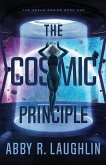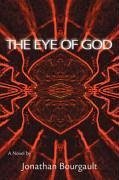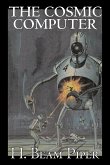Rex Morris belonged to the master class which ruled the entire world by brain power or brutality, depending on which was needed. He should have functioned perfectly in the rigid totalitarian society of the future where every thought, word, and action was controlled by the superstate, where everyone was watched night and day by the Great Eye of the internal security forces. It was a strange world, but the rewards were great for those who belonged to the right caste. Morris had all the qualifications -- yet he didn't belong. Nonconformity could mean liquidation -- but he was prepared to take the risk!
Bitte wählen Sie Ihr Anliegen aus.
Rechnungen
Retourenschein anfordern
Bestellstatus
Storno








